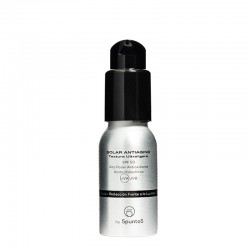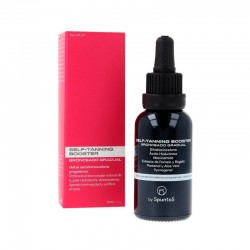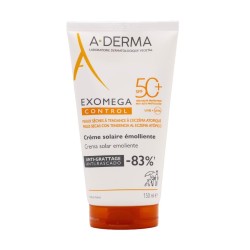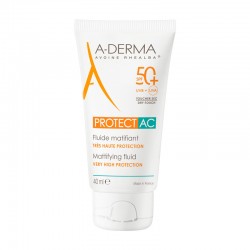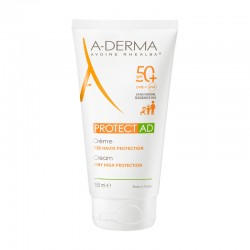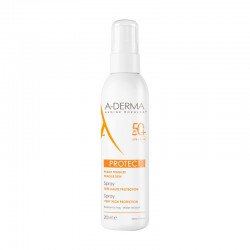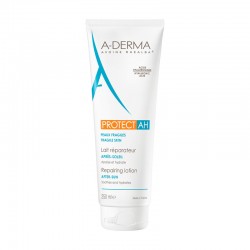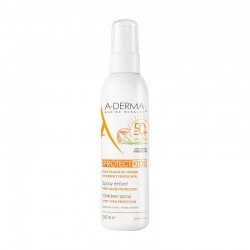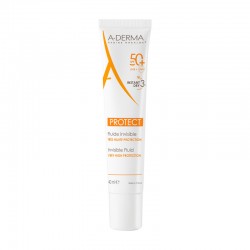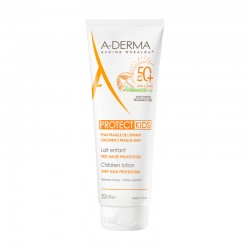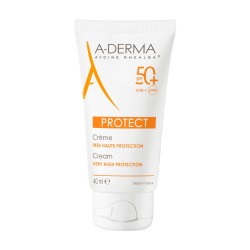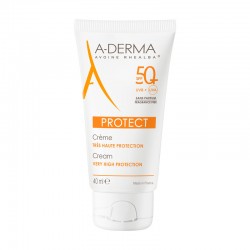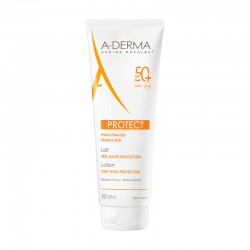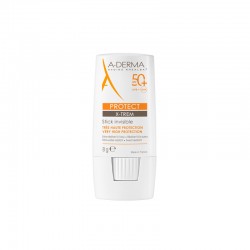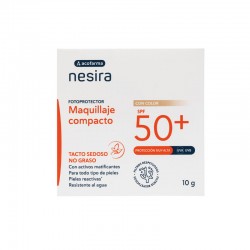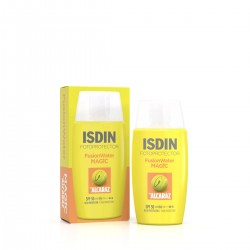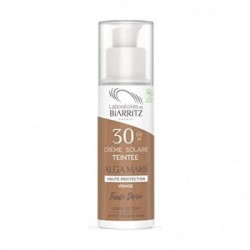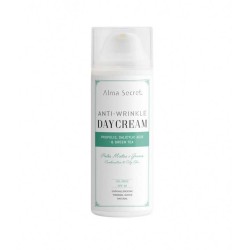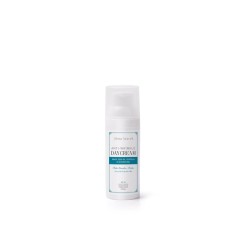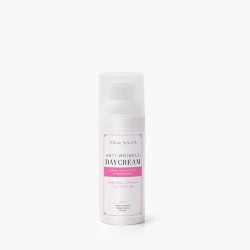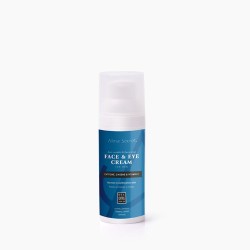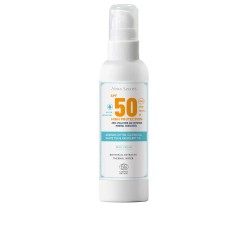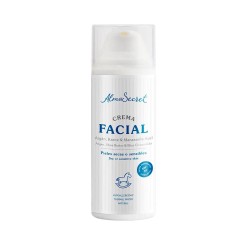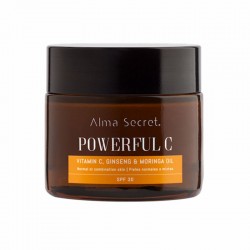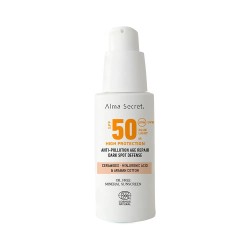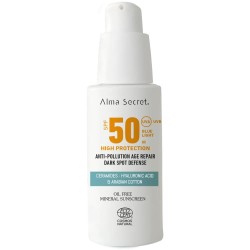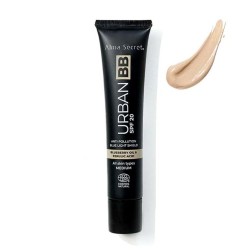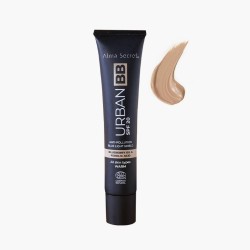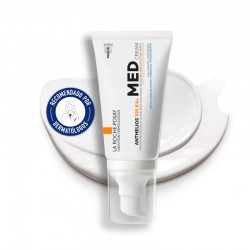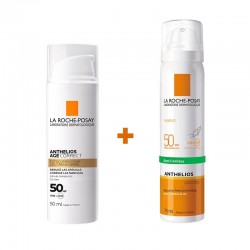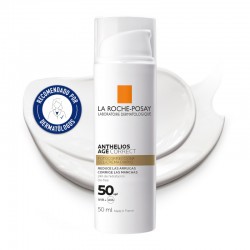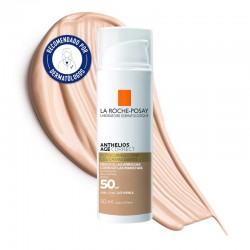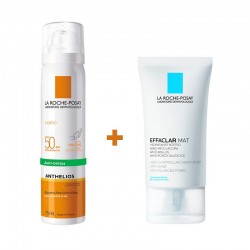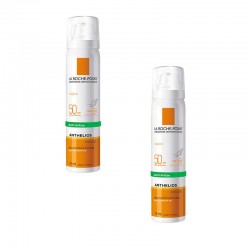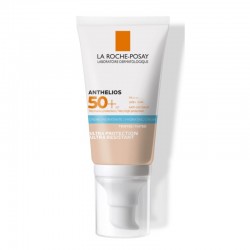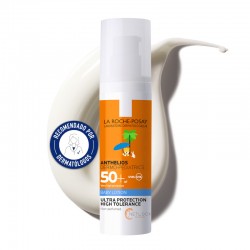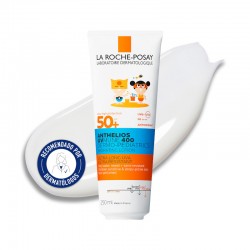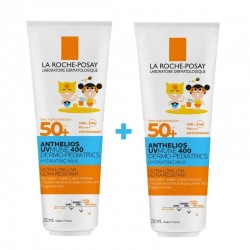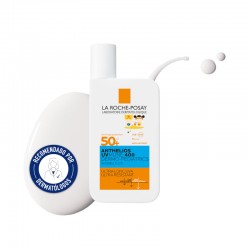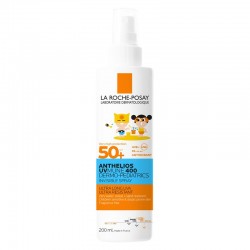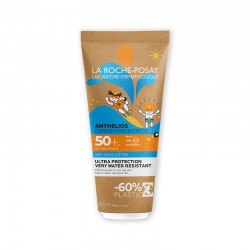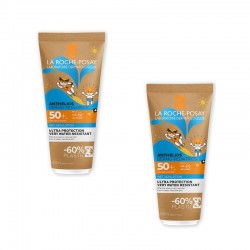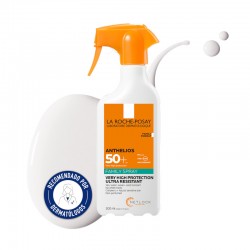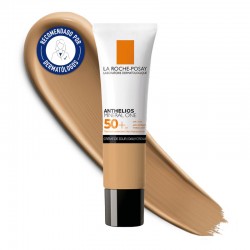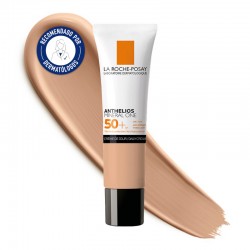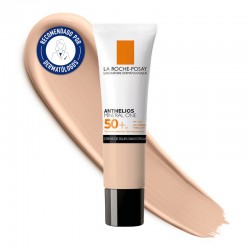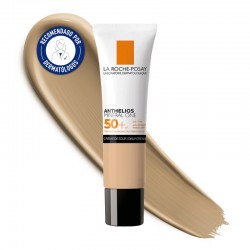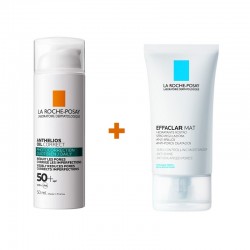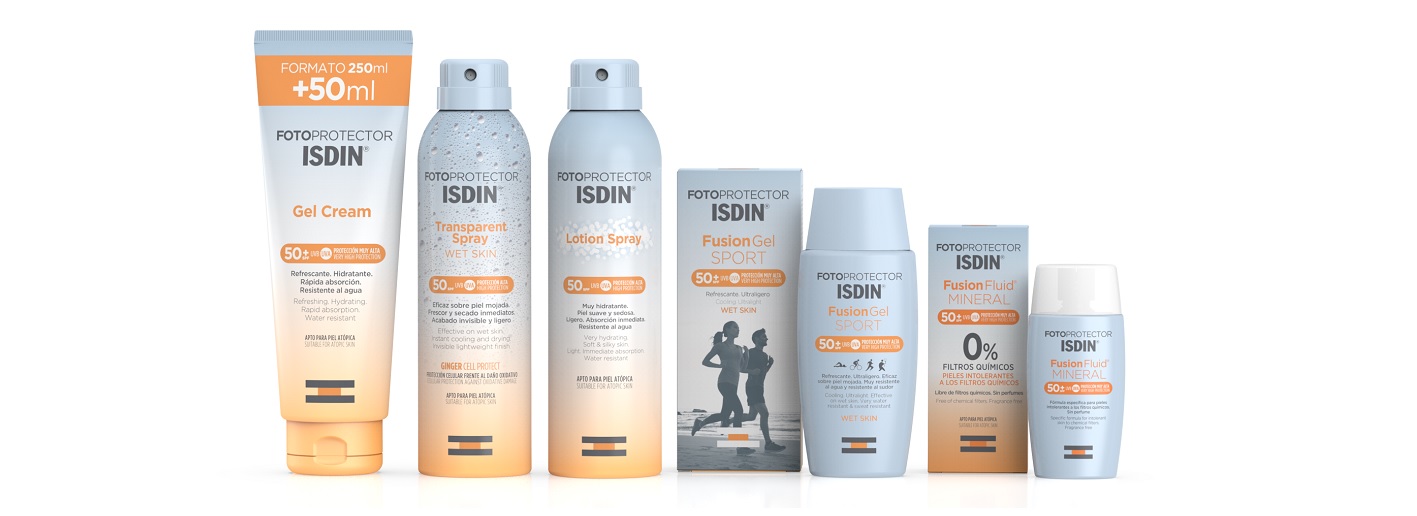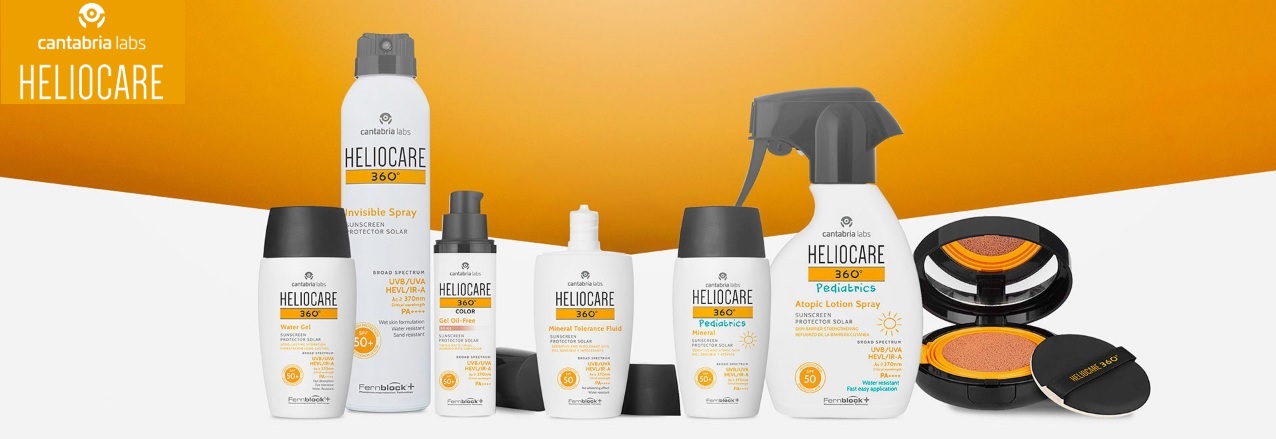Solar protection
- -20%
- -13.65%
- -6.97%
- -5.85%
- On sale!
- -17.4%
Alma Secret Anti-Wrinkle Day Cream - Oilfree with Propolis & Green Tea SPF 20 50 ml
- -19.11%
Alma Secret Anti-Wrinkle Day Cream Grape, Centella & Resveratrol SPF 20 50 ml
- -4.98%
Alma Secret Anti-Wrinkle Day Cream with Argan, Shea & Pomegranate SPF 20 50 ml
- -5.91%
Alma Secret Anti-Wrinkle Facial & Eye Cream Caffeine, Ginseng & Vit C SPF 20 50 ml
- -4.49%
- -26.27%
Alma Secret Facial Cream with Argan, Shea and Blue Chamomile SPF 20 50 ml
- -22.51%
Alma Secret Powerful C with Vitamin C, Ginseng & Moringa SPF 30 50 ml
- -6.99%
Alma Secret Solar Facial Natural SPF 50 with Ceramides (Color: Sand) 50 ml
- -23.14%
- -23.11%
- -24.44%
ANTHELIOS BB Tinted Cream Sunscreen SPF 50+ (50ml) La Roche Posay
- -1.41%
ANTHELIOS Dermo-Pediatrics Children's Milk SPF50+ (250ml) LA ROCHE POSAY
- -4.53%
ANTHELIOS Dermo-Pediatrics Invisible Spray SPF 50+ (200ml) LA ROCHE POSAY
- -17.54%
ANTHELIOS Dermo-Pediatrics Wet Skin Lotion SPF50+ (200ml) LA ROCHE POSAY
- -17.55%
ANTHELIOS Mineral One SPF50+ Colored Facial Cream Tone 4 Brown 30ml
- -1.45%
ANTHELIOS Mineral One SPF50+ Facial Cream with Color Tone 3 Bronze 30ml
- -2.43%
ANTHELIOS Mineral One SPF50+ Tinted Facial Cream Tone 1 Light 30ml
- -2.39%
ANTHELIOS Mineral One SPF50+ Tinted Facial Cream Tone 2 Medium 30ml
- -2.46%
Sunscreens - Photoprotectors
Photoprotectors at Farma2Go
Sunscreens are products that prevent, slow down or reduce the penetration of ultraviolet (UV) rays from the sun through the skin. The photoprotective creams, oils and lotions that you can find at Farma2Go provide you with protection that prevents harmful UVB and UVA rays from penetrating the skin, reducing the risk of burns, the appearance of spots and premature skin aging.
Contrary to popular belief, sunscreens are not products for exclusive use in the summer or summer season, but rather it is recommended to use them all year round, especially if your skin is sensitive or has dermatological conditions. And the sun is pleasant and we all love to have a nice tan on our skin, but it can also be very dangerous, so you have to be careful and listen to the recommendations of the experts. Taking the necessary precautions is no longer a matter of being dark or white, but rather a serious public health problem.
Who should use sun protection?
The ideal, recommended by pediatricians and dermatologists, is that everyone from six months of age should use sunscreen every day. This includes those who work in covered areas and those who are exposed to ultraviolet radiation for very short periods throughout the day, since, for example, most windows do not block UVA rays. Up to 40% of ultraviolet radiation can reach the earth on a completely cloudy day, so the erroneous perception that when it is not sunny there is no need for photoprotection often leads to unforeseen severe burns.
Children under six months, in particular, should not be exposed to the sun, and it is best to keep them in the shade or covered with hats and umbrellas to adequately protect them from sun damage.
What Types of Solar Radiation Are There?
There are two types of ultraviolet solar radiation, UVA rays and UVB rays. These seconds are the main cause of sunburn, which causes damage and increases the risk of skin cancer; while UVA rays penetrate the skin more deeply and are associated with wrinkles, loss of elasticity and other characteristic effects of photoaging. UVA rays also aggravate the carcinogenic effects of UVB, and increasingly, thanks to constant studies on the subject, it is considered a greater contributor to skin cancers.
Knowing this difference between the two types of solar radiation is very important, since, because they act differently, we must be aware that redness and burning of the skin is a reaction to UVB rays, which is why we It says very little about the possible damage that UVA rays are doing, the consequences of which are seen more in the long term and may be less visible at the moment. Therefore, we must always protect the skin with sunscreens, not only when we see the first signs of redness, since UVA rays can be causing us a lot of damage, even if we are not seeing it.
What is Sun Protection Factor SPF or FPS?
The Sun Protection Factor (FPS or SPF) is a value that acts by multiplying the time that the skin can be exposed to the sun without damage. The base exposure time, without the use of protective filters, varies greatly from one person to another, but, broadly speaking, there are 6 different types of skin based on their tone, ease of burning and ability to tan. This is what is known as the phototype (according to the classification developed by the best dermatologists). For example, lighter phototype 1 skin can withstand the sun without burning for about 10 minutes, so a cream with a sun protection factor of 30 will multiply by 30 the time that a person with that skin type can be exposed to the sun. .
This is the basic theory, but there are various factors that cause the protection effectiveness to decrease, such as sweating, contact with water, the effect of friction with clothing or contact with other textures. Therefore, according to specialists, it is necessary to reapply cream to the skin in shorter intervals of time: at least every two hours.
Another way to assess what SPF we need for our skin is in terms of percentages : a Sun Protection Factor of 15 blocks approximately 93% of all UVB rays, an SPF 30 blocks 97% and an SPF 50+ blocks 99%. . Although they may seem like insignificant percentage difference margins, if your skin is sensitive to light or if you have a history of skin cancer, these percentages can be vitally relevant and make a difference. One notable thing to keep in mind is that no sunscreen will be able to guarantee total and absolute blocking of all UV rays.
What Types of Filters against Solar Radiation can we use?
Filters can be physical, chemical or biological, or combinations of them may exist in a product. Physical filters are those that act as a reflective screen, generating a kind of shield that causes radiation to bounce back. They are the filters that protect the most, being especially useful for sensitive or sun-allergic skin. On the other hand, chemical filters are the most widespread on the market and the most consumed by users. They are activated through photochemical reactions when radiation hits the skin, absorbing it and minimizing its impact. With a much more pleasant application as they have more fluid textures, they may be unsuitable for skin with intolerances or children, since they are quickly absorbed by the skin. Finally, biological filters are simply antioxidant agents that strengthen natural defense systems and prevent oxidative damage generated by ultraviolet radiation, such as Vitamin E and A.
How is Sun Cream Used?
It is very important to control the amount of photoprotector applied to the skin. Following the recommendations of dermatologists, it is ideal to apply about 2 millimeters of sunscreen for every 2 square centimeters of skin. In addition, it is also important to monitor when you should apply sunscreen. According to specialists, it should be applied about 30 minutes before sun exposure, since sunscreens must be absorbed by the deepest layers of the skin to be completely efficient. It is very important to reapply the photoprotector every two hours, spreading an amount equal to the first application. Likewise, it is advisable to repeat the application after swimming, drying with a towel or sweating excessively.
What Sun Protection should I use?
Depending on the type of skin and the sun exposure that we are going to have on a daily basis, it is advisable to use one SPF or another. In all cases, a broad-spectrum sunscreen that offers protection against UVA and UVB rays is recommended.
Using a sun protection factor SPF 15 , such as that contained in many shaving lotions or moisturizing creams, may be sufficient for daily activities while spending just a few minutes in the sun. However, if you work or spend a lot of time outdoors, a sunscreen that offers greater sun protection is recommended. We must also take into account if we are going to be in contact with water, such as on the beach or the pool, since then we must opt for water-resistant sunscreens, which are also ideal for hot days where sweating is more marked, or while doing sports. In addition, the latter are less likely to irritate the eyes, but they are more sticky, so they may not be such a good option for everyday use or with makeup.
In short, each person should choose their own sunscreen based on their characteristics and needs. For this reason, at Farma2Go we have a very extensive catalog so that you can try and select the most appropriate sunscreen for each moment of the day and for different situations. As always, we only work with the best brands, those that guarantee pediatric and dermatologically tested efficiency and quality, which you can find at Farma2Go with the best prices on the market.
How to Soothe the Skin after Sun Exposure?
After sun exposure, it is very appropriate to soothe and calm the skin with lotions, gels or ampoules that rehydrate it. After sun products have a fairly light texture that absorbs well and is very easy to apply. They usually have a large amount of soothing ingredients intended to care for and regenerate the skin. Normally, they are used after a shower, spreading it over the entire skin, especially in those areas where there are possible burns and redness. At Farma2Go you can find a wide variety of after sun, with different characteristics and benefits for the skin, being able to opt for one that helps prevent the signs of photoaging or one more focused on making the tan last longer and be more uniform.
The Damages and Harms of Solar Radiation
According to data from the World Health Organization (WHO), the incidence of skin cancer, both melanomas and non-melanomas, has increased in recent decades . In fact, one in three cancers diagnosed in the world is skin cancer, resulting in the global incidence of this type of cancer continuing to increase. One of the main factors that predispose a person to its development is closely related to recreational exposure to the sun and each person's history of sunburn, so it is very important to take care of the skin and use appropriate photoprotectors when exposing our body. to the sun. Sunburns are extremely common: data from some surveys reveal that around 40% of the population suffers a sunburn at least once a year.
How is Solar Radiation Related to Skin Cancer?
Sun exposure goes hand in hand with skin cancer. The two most common types of non-melanoma skin cancer usually develop in the most exposed areas such as the face, ears or hands. In the case of melanoma it is different, although it is believed that a brief and intense exposure (a burn with blisters) can cause it. There are also other risk factors associated with melanoma such as family history, skin type, and having a large number of large moles on the body. Additionally, melanoma can develop in any area of the body, regardless of whether a sunburn occurred there.
To avoid these risk factors, it is best to look for shade to avoid sunburn, avoid tanning salons, and apply a good sunscreen daily. In addition, it is good to properly cover the skin when the radiation is very strong, as well as keep newborns away from the sun. It is advisable to examine your skin from head to toe every month, consulting with your doctor every year for a professional examination in order to monitor possible changes that your skin suffers as a result of solar action.
Sun Protection with the Best Brands in Farma2Go
At Farma2Go we only work with the best brands to offer you the best sunscreens on the market so that you can properly protect your skin from solar radiation. In addition, we strive to always have the best prices, so that you have the highest quality within your reach. Take a look at our photoprotection catalog for face, body, after sun, oral, hair or self-tanning, and enjoy our exclusive offers through direct discounts, double packs, Superprices or Discount Coupons and Promotional Codes. The best way to ensure you don't miss a single one of our offers is to subscribe to our newsletter, to always be up to date and be able to get the best quality at the best price.
ISDIN Photoprotectors: ISDIN's continuous innovation makes available to its consumers textures adapted to different needs, offering its optimal balance between effectiveness, safety and latest generation textures. Its products guarantee the best protection against solar ultraviolet radiation, UVB and UVA, with light textures, quick absorption and no greasy residue. Furthermore, the concern that all skin types can enjoy its products leads ISDIN to dermatologically test all its sunscreens to guarantee high tolerance, even for atopic skin. Respect for the environment and the natural environment is another of ISDIN's principles, which is why they have developed formulations with inorganic and/or biodegradable ingredients to achieve Sea Friendly products. Try their exclusive photoprotectors such as ISDIN Foto Ultra Age Repair SPF 50+ or ISDIN Fusion Water Photoprotector SPF50+ . At Farma2Go we put the best ISDIN sunscreens at your disposal.
-HELIOCARE Photoprotectors: Reference photoprotection for a healthy life in the sun. Brand recommended by professionals thanks to its innovative Fernblock technology, which protects against 4 solar radiations, neutralizes free radicals and repairs sun damage outside and also inside. Heliocare belongs to Cantabria Labs, a pharmaceutical company that, thanks to its investment in research , guarantees high photoprotection of its products and great action in preventing skin aging, actinic damage, sun allergies and spots. At Farma2Go we have a wide variety of Heliocare sunscreens at the best price online, such as HELIOCARE 360º Gel Oil-Free SPF 50+.
check_circle
check_circle

